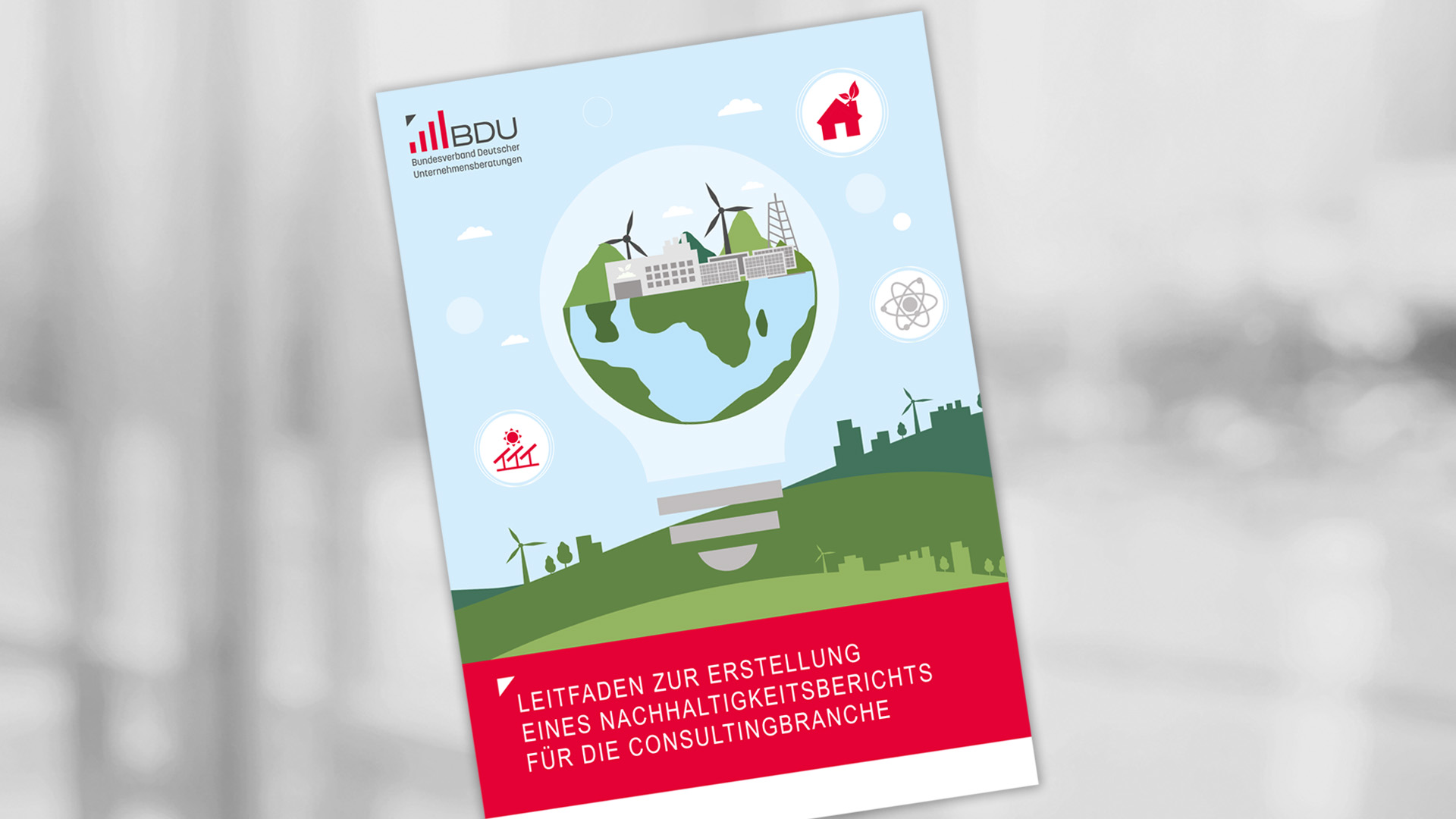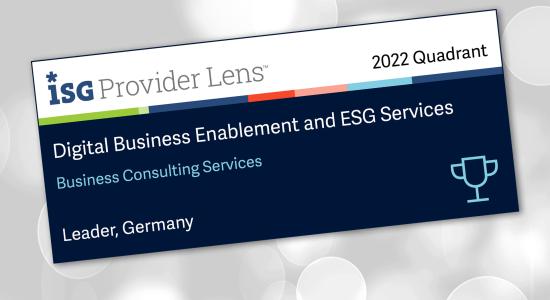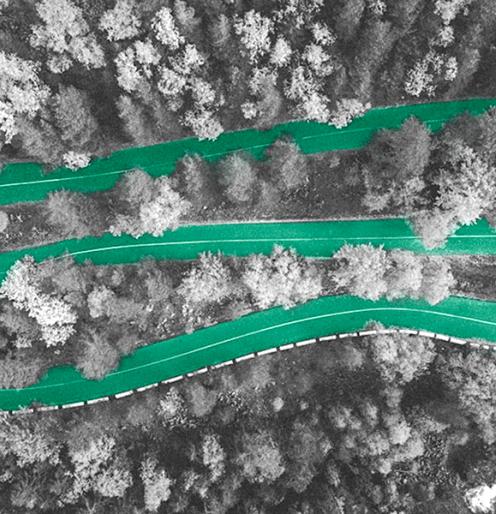- Home
- Consulting
- Consulting Areas
- Sustainability
Sustainability
Sustainability strategies for companies
In today’s world, practicing responsibility in our daily lives encompasses in no small part a commitment to sustainability. As companies are the largest contributors to greenhouse gas emissions and ecosystem losses, they must accept a key role in fulfilling this commitment. Their actions, when viewed as a whole, have the scale necessary to assure an environmentally sustainable future with a truly positive net impact on the planet.
In support of companies seeking to shoulder this responsibility, Detecon has developed its own sustainability consulting approach, which focuses on one of the most important levers for sustainable development: Digitainability, the use of digital technologies for sustainable resource efficiency.
We will be happy to help you in the development of a digital sustainability strategy that prepares your company for a sustainable future.
Digitainability: Concept for a sustainable future
Digitainability emerges wherever digitalization meets sustainability. Originally conceived by the Bonn Alliance for Sustainability Research (Prof. Jakob Rhymer and today´s Detecon consultant Shivam Gupta), this integration of the terms digitalization and sustainability designates the interplay between digitalization and sustainable development and their fruitful interrelationship. In this sense, it is at the heart of Detecon’s sustainability consulting approach.

BDU Guide to Sustainability in the Consulting Industry
Sustainability in consulting industry is not only a matter of managing own business. Consulting activities in companies are a relevant lever for more sustainability in the economy generally. In this sense, consultancies bear not only entrepreneurial but also ecological and social responsibility.
Good enough reason for the BDU association to develop a guideline for sustainability in the consulting sector, to which our expert Christoph Zorn contributed considerably: Read more in the BDU guide!
Six steps to digital sustainability
Digital technologies are the main drivers for the transformation toward environmentally and socially responsible corporate governance. But they must be used correctly if they are to realize their full potential.
Detecon’s sustainability approach is based on a six-step procedure:
Define scope
Creation of a common understanding about the requirements, the essential fields of action in the company, the scope of cooperation, and the sustainability goals.
Assess baseline and maturity
Assessment of the current status in the organization of methods, standards, and tools now in use and of strategies for achieving sustainability goals now and in the future. Furthermore, definition of the relevant data sets, data collection and harmonization, and data aggregation; calculation of the baseline.
Set expectations and ambitions
Screening, evaluation, and prioritization of present expectations and ambitions, taking into account various influencing factors (including global frameworks, stakeholders, competitors, and general legal conditions).
Implement strategy and measures
Development of a strategic approach for achievement of the defined sustainability goals along with short- and long-term measures to reach the defined level of ambition, elucidated in a road map with performance indicators.
Anchor governance
Creation of a comprehensive governance plan for the long-term anchoring of the defined sustainability goals in the company, taking into account all relevant stakeholders, contacts, and strategic departments (e.g., Compliance). Recommendation for potentially suitable instruments for measuring target achievement and the internal and external rollout of the new strategy that will ensure the solid anchoring of sustainability in the corporate culture.
Change Management
Concept development to convince major stakeholders of the value of the realignment of the corporate vision. Ensuring that all stakeholders share the same goal of climate neutrality requires consistent communication and an active learning culture. Managers must expand their role model function and motivate employees in all areas. Sustainability ambassadors scale the new culture into all divisions of the company.
Fields of Action
There are many different possible starting points in companies for anchoring sustainability in corporate management.
Sustainability strategy
The development of a tailored and coordinated sustainability strategy, taking into account all pertinent influencing factors.
Energy efficiency and green IT
The development of a green IT strategy or measures that will affect the full length of the value chain. From the selection of hardware and vendors to “make-or-buy” decisions and the choice of sustainable energy sources to (cyber)security aspects or procedures to be followed toward the end of the lifecycle.
Client enablement
The integration of a client enablement concept that aims to demonstrate the positive environmental impacts resulting from the use of information and communication technologies (ICT). Either by optimizing ICT itself to make it more sustainable or by making long-term changes at the systemic level.
Sustainable supply chain
Actions for handling the impact of environmental and social factors along a company’s own value chain have become even more pressing since the entry into force of the Supply Chain Due Dilligence Act (LkSG). Companies must create data transparency and implement risk management systems, governance models, and complaint mechanisms or face harsh penalties. The requirements can also be viewed as an opportunity to transform the company and prepare it for the future, however.
Environmental, social, and governance management
The prioritization of ESG criteria within the company and the implementation of strategic measures to improve the company’s positioning in conjunction with the effective use of digital tools and reporting structures.
Reporting
Establishing and building clear reporting structures go hand in hand with an understanding of the legal requirements and the capacity to create or consolidate essential data streams and evaluate them appropriately so that the adjustment of existing targets and measures is possible.
Corporate carbon footprint
The analysis and calculation of the carbon footprint in accordance with the three scopes of the Greenhouse Gas Protocol (GHG): direct emissions, indirect emissions, and corporate value chain emissions, plus the derivation of related sustainability measures.
(Digital) Product Carbon Footprint
The analysis of the carbon footprint of inter alia (digital) products and the associated infrastructure and the emissions caused by the human resources employed along the product lifecycle.
External editorial content
Consult our expert
Nature is a system in constant change, searching for constant balance. It is a system that understands all the functioning patterns of its elements and adapts considering changing events. Or, in our words: it is a resilient data-based sustainable system.
External editorial content
Everything about the Supply Chain Due Dilligence Act (LkSG)
The new Supply Chain Due Diligence Act (Lieferkettensorgfaltspflichtengesetz; LkSG) will fundamentally change the reality of German companies as of the beginning of 2023. As if there were not enough, more EU regulations are on the way.
The new regulation requires the implementation of strict risk management systems, grievance mechanisms, and transparent reporting at various corporate levels to address the risks of human rights violations and environmental harm along global supply chains.
We believe that companies should take advantage of this situation and seize it as an opportunity to adopt digital transparency measures that will enable them to make the right — and sustainable — data-based decisions.
Read a summary of the most important aspects of the law and a use case here.
Sustainability Solutions of T-Systems
Find out how T-Systems Solutions are driving sustainable outcomes:
- ISG Provider Lens: T-Systems is Leader in Sustainability & Decarbonization services
- Rethink the system: Making sustainable innovations together
- Learn more about the link between sustainability and digitization
- PODCAST (in German): Making logistics more sustainable with digitization
- More information on Sustainability at T-Systems










